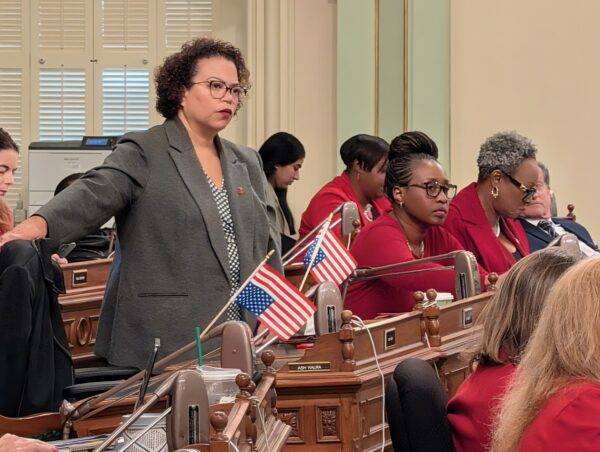By: Edward Henderson, California Black Media
As the California Legislature heads into summer recess, California Black Media lists five bills Gov. Gavin Newsom signed last week that you should know about.
Once a bill is signed into law by the governor, it is chaptered by the California Secretary of State, and it becomes state law.
Most of these bills will go into effect on Jan. 1, 2026 – except for one which takes effect in 2027 — unless they are delayed or expedited.
AB 1297: Letting Your Family Insurance Lapse During a Divorce or Separation Is Now Against the Law
AB 1297, introduced by Assemblymember Catherine Stefani (D-San Francisco), adds a new rule to temporary restraining orders in divorce, separation or custody cases.
Existing law blocks both parties from canceling or changing insurance policies, cashing in or borrowing against insurance or changing beneficiaries on insurance that benefits either party or their children.
Effective Jan. 1, 2027, the law will also prohibit either party from letting insurance expire by not paying the premiums or failing to renew the policy.
“Nobody should be at risk of losing essential insurance coverage during a divorce,” said Stefani in an Instagram post. “I’m deeply grateful to my colleagues in the State Legislature for their support, and to the governor for signing this important piece of legislation into law.”
AB 313: Students Can No Longer Lose Financial Aid Due to Delays Beyond Their Control
AB 313 allows the California Student Aid Commission to extend application deadlines for Cal Grants, the Middle Class Scholarship, and other aid programs by up to 30 days upon a formal request.
Another 30-day extension can be granted in a state or federal emergency.
Previously, schools or colleges had to formally ask the state for deadline extensions on behalf of their students. Now, the Commission can automatically grant 30-day extensions if it finds that an event — such as a declared state of emergency or FAFSA system glitch –has made it hard for students to apply on time.
Authored by Assemblymember Liz Ortega (D-Hayward), the law applies to delays caused by a natural disaster; states of emergency declared by the California governor or president of the United States; delays in opening the Free Application for Federal Student Aid (FAFSA); or a labor action.
AB 1034: All Teachers Must Now Have Youth Mental Health Training
AB 1034, authored by Assemblymember Anamarie Avila Farías (D-Concord), expands teacher training requirements to achieve a credential to include modules on mental health issues that impact young people.
Previous state law required trainings for health education topics like nutrition, CPR and the effects of alcohol, drugs and tobacco — but did not require any training on common mental health challenges for youth.
“California is experiencing a youth mental health crisis,” said Avila Farías in a statement.
“By incorporating youth mental health training into the credentialing process, we will ensure that teachers are equipped to recognize the signs of distress and respond appropriately,” she added.
AB 233: Food Truck Owners Can Now Sell Beer
AB 233 allows licensed beer manufacturers or wholesalers to sell beer to licensees authorized to sell beer from trailers, wagons and trucks.
This includes smaller vendors tied to festivals, sports and other gatherings.
Assemblymember Mike Gipson (D-Carson), a member of the California Legislative Black Caucus (CLBC) who introduced the bill, believes this bill will support economic activity in communities across the state and benefit small business owners.
AB 233 amends California’s Business and Professions Code to permit this change.
AB 553: Law Ends CalFresh Ban on Hot Food, Other Options
This bill, written by Assemblymember Jessica Caloza (D-Los Angeles), mandates that California’s Department of Social Services must do everything possible to maximize all food choices for CalFresh users.
These options, under California law, may now include hot prepared foods, or foods or hot food products ready for immediate consumption and any allowable food option under federal law.
Previous state law only required the department to “ask permission” or request waivers for these food options.
“By removing red tape and modernizing program rules, this bill supports dignity, choice, and flexibility for millions of Californians who rely on CalFresh every day,” said Caloza in a statement.
Current federal law still prohibits Supplemental Nutrition Assistance Program (SNAP) benefits to be used for purchasing hot food with the exception of the Restaurant Meals Program, which allows elderly or disabled people to buy food from particular restaurants.
However, there are separate bills currently under consideration in U.S. House and the U.S. Senate — both introduced in March of this year – that would allow SNAP benefits to be used to purchase hot food.
If passed, California law will already be in alignment with the federal mandate.






